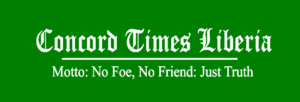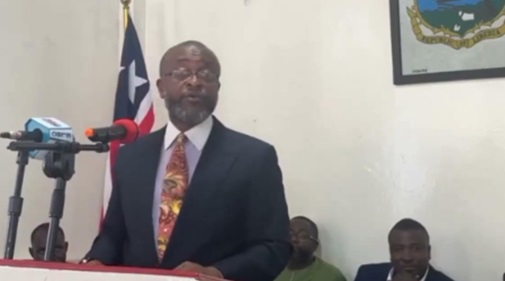Monrovia, Liberia – Jake Kabakollie, the nephew of Liberian President Joe Boakai, has been thrust into the spotlight as the new acting boss of the troubled National Oil Company of Liberia (NOCAL). The entity faced financial ruin during the Unity Party regime of Ellen Johnson Sirleaf when Boakai served as Vice President. President Sirleaf went so far as to authorize the dismissal of all NOCAL employees due to its insolvency. It wasn’t until President George Weah assumed power that efforts were made by his administration to revive the struggling entity.
Recent documents have indicated that NOCAL has shown signs of recovery under Weah’s governance. However, the administration’s defeat in the presidential election has resulted in Boakai assuming office, promptly appointing his nephew Kabakollie to a leadership position within NOCAL. Allegations of corruption surrounding Kabakollie have begun to surface, with reports from pro-Boakai news outlet Spoon Network showcasing supposed evidence of fraud under his leadership.
Instead of launching an independent investigation into the allegations and suspending Kabakollie pending the results, President Boakai offered his nephew a platform within the Ministry of Information to refute the claims of fraud. Adding to the controversy, Kabakollie also simultaneously holds the position of chairman at the Liberia Petroleum Regulatory Authority’s board, the overseeing body of NOCAL where he is concurrently serving as head. This dual role has drawn criticism, likening Boakai’s decision to appoint his nephew to the practices of former President Sirleaf, who had appointed her son Robert Sirleaf to a dominant role within NOCAL.
The intertwining of familial connections and the potential conflict of interest in Kabakollie’s dual positions have sparked concerns about the transparency and integrity of NOCAL’s operations under the Boakai administration. Critics have raised questions about the impartiality of the government’s handling of corruption allegations, particularly in light of Kabakollie’s swift transition to a key role within the troubled entity. The evolving situation at NOCAL under Kabakollie’s leadership may have broader implications for the Boakai presidency and its commitment to combatting corruption and ensuring good governance within Liberia’s vital oil sector.








